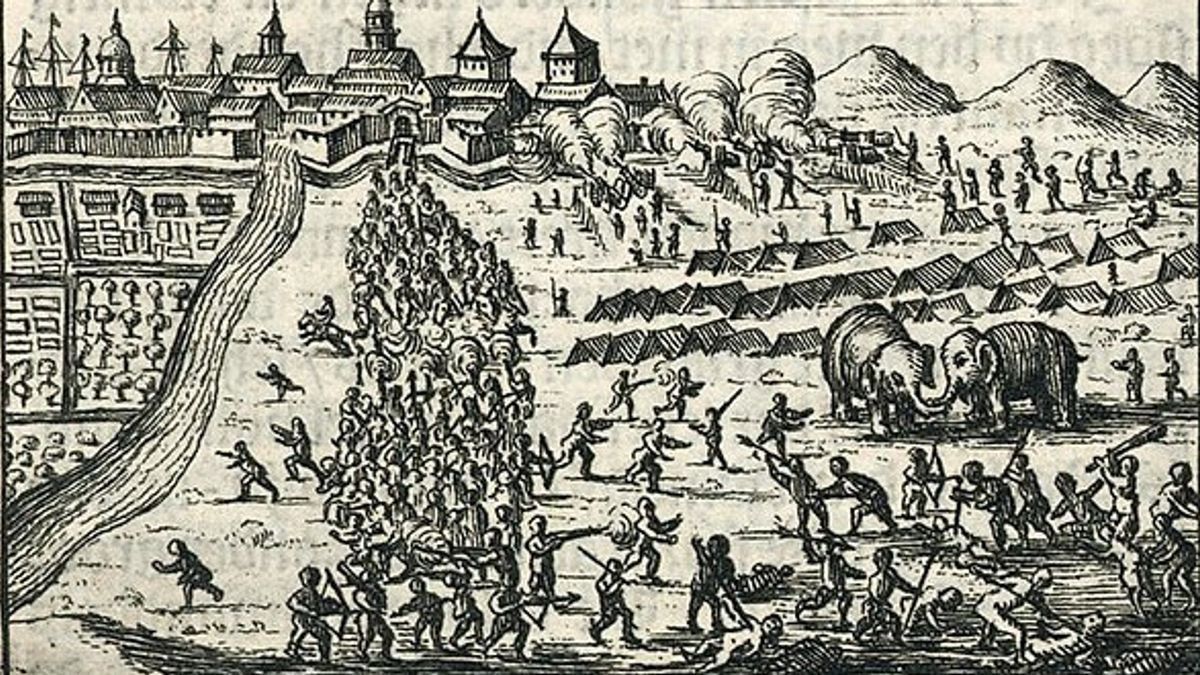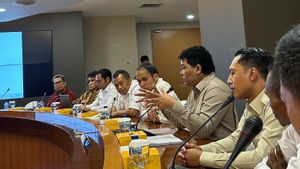YOGYAKARTA - Sultan Agung once carried out an attack on Batavia, which is currently called Jakarta, in 1628 and 1629. The third Sultan of Mataram mobilized his troops because he realized that the presence of the VOC in Batavia could be the power of Mataram Islam on the island of Java. So what is the main reason Sultan Agung launched an attack on Batavia?
Sultan Agung is known as one of the kings of Java who succeeded in bringing the Sultanate of Mataram in the era of glory. Sultan Agung Adi Prabu Hanakusuma ruled at the center of the Islamic Mataram capital in Yogyakarta and expanded to various regions on the island of Java.
During his leadership, Sultan Agung opposed the Dutch trading partnership (VOC). One of the steps taken was to invade Batavia, which at that time was the center of the VOC government. As a historical insight into the development of the Mataram Islam kingdom, it is interesting to hear the reason Sultan Agung attacked Batavia.
The following are some of the reasons that triggered Sultan Agung to send troops to attack the VOC in Batavia:
The existence of the VOC in Batavia is considered to threaten the hegemony of the power of the Islamic Mataram Kingdom. This factor is one of the reasons Sultan Agung attacked Batavia. When the VOC was still centered in Ambon, the trade relationship between Mataram and the VOC actually went well and was mutually beneficial.
Actually, since the beginning of his power, Sultan Agung has emphasized that the relationship between Mataram and VOC can only continue if the VOC has no intention of controlling Java.
The situation worsened when the VOC managed to seize Jayakarta in 1619 and changed its name to Batavia. Not only that, in 1620, the Governor-General of the VOC, Jan Pieterszoon Coen, moved the center of power of the VOC from Ambon to Batavia.
This transfer was carried out because Batavia was considered to have a more strategic and more potential location for the development of VOC trading. Sultan Agung felt that the VOC had ignored its warnings and attempted to carry out colonialism that endangered the political position of the Islamic Mataram Kingdom.
The reason for the Sultan Agung's resistance to the VOC in Batavia was also triggered by the VOC attack on Jepara that occurred before the VOC head office was moved to Batavia. On August 18, 1618, Mataram forces stormed the VOC trading office in Jepara.
Previously, the leader of the VOC trading office, Balthasar van Eynthoven, had been detained for being accused of being involved in the robbery of Dutch ships against ajung in Jepara.
In addition, Balthasar's behavior was considered very bad, one of which was his act of smearing the walls of the mosque in Jepara. After the fighting took place, the VOC sent Jacob van der Marct as an envoy to discuss the purchase of rice that Mataram had stopped.
However, after the agreement was reached, the VOC carried out a counter-attack by burning Javanese ships in Jepara and Demak.
In 1619, Mataram and VOC relations were increasingly tense, but Sultan Agung had not yet responded because his focus was still on conquering areas in Java. Sultan Agung even tried to improve relations by offering rice shipments, but asked the VOC to provide naval assistance to Mataram.
This assistance is intended to help the Sultan Agung attack Surabaya and Banten, two areas in Java that have not been successfully controlled by Mataram. However, the request of the Sultan Agung was rejected by the VOC.
Without support from the VOC, Mataram managed to beat Surabaya in 1625. After that victory, Banten became Mataram's next target. However, this ambition was hampered by the existence of Batavia, which is controlled by the VOC.
Sultan Agung also considers the presence of the VOC in Batavia as a threat because it often blocks the Mataram merchant ship from trading to Malacca. One of the reasons Sultan Agung attacked the VOC in Batavia was to get rid of obstacles created by the VOC there.
Therefore, Sultan Agung decided to attack Batavia. The attack was launched by Sultan Agung Hanakusuma twice, namely in 1628 and 1629.
SEE ALSO:
That is the main reason Sultan Agung launched the attack on Batavia. Although the attacks were not successful, they did not change the views of the Great Sultan regarding the potential of the VOC to dominate Java and endanger his power. Until the end of his life, Sultan Agung had never had good cooperation with the VOC. Also read the VOC trying to cooperate with the Mataram Kingdom.
Stay up to date with the latest domestic and other overseas news on VOI. We present the latest and updated information nationally and internationally.
The English, Chinese, Japanese, Arabic, and French versions are automatically generated by the AI. So there may still be inaccuracies in translating, please always see Indonesian as our main language. (system supported by DigitalSiber.id)
















